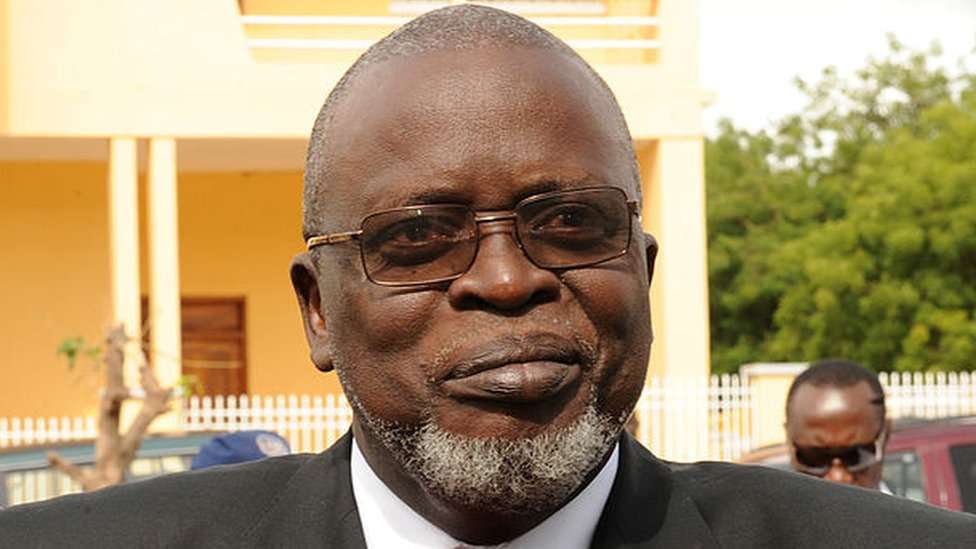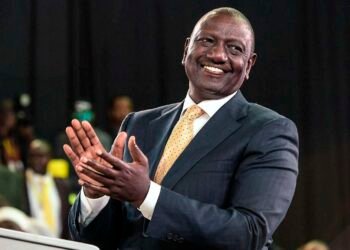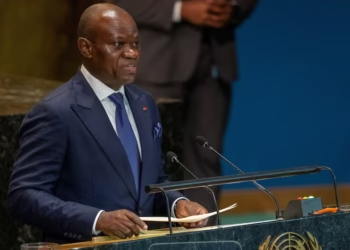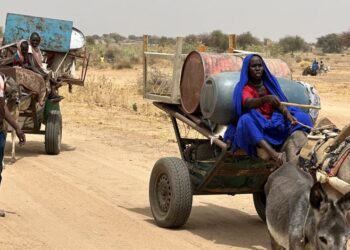A US court has handed the son of Guinea-Bissau’s former president a hefty sentence of more than six years in prison.
Malam Bacai Sanha Jr, aged 52, was found guilty of orchestrating an international heroin trafficking operation.
Authorities revealed that Sanha Jr intended to utilize the profits from the illicit drug trade to finance his bid for the presidency in Guinea-Bissau through a coup d’état.
Sanha Jr, whose father, Malam Bacai Sanha, served as the country’s leader from 2009 until his passing in 2012, was also implicated in a failed coup attempt in February 2022.
After being apprehended in Tanzania, Sanha Jr was extradited to the United States in August 2022. His trial swiftly followed, and he admitted guilt to charges of conspiring to unlawfully import narcotics in September of the previous year.
“Malam Bacai Sanha Jr wasn’t any ordinary international drug trafficker,” said FBI agent Douglas Williams.
“He is the son of the former president of Guinea-Bissau and was trafficking drugs for a very specific reason – to fund a coup that would eventually lead him to the presidency of his native country where he planned to establish a drug regime.”
According to US officials, Sanha Jr, who is not a citizen of the United States, may face deportation after serving his prison sentence.
The 52-year-old, commonly referred to as “Bacaizinho” in Guinea-Bissau, has held various positions within the government, including serving as an economic adviser to his father.
Reportedly, Sanha Jr admitted his direct involvement in the unsuccessful coup attempt of 2022 aimed at ousting President Umaro Sissoco Embaló. The coup resulted in the deaths of 11 individuals, predominantly members of the security forces.
Sanha Jr allegedly disclosed to US authorities that he utilized profits from drug trafficking to support the individuals plotting the coup.
Guinea-Bissau has gained notoriety as a hub for drug trafficking, serving as a vital route for narcotics bound for both Europe and the United States.
According to experts, drug traffickers and their networks wield significant influence within Guinea-Bissau’s government. They are deeply rooted in the political landscape, frequently financing election campaigns for politicians whom they can depend on to safeguard their illicit activities.
The Cocaine Nexus

Guinea-Bissau’s strategic geographical location along the Atlantic Ocean has rendered it an unwitting player in the global drug trade.
The country’s islands, scattered across the coastline, serve as convenient smuggling points for illicit substances. Cocaine, in particular, flows through this narco-state, making it a critical transit hub from Latin America to Europe and North America.
The United States, and the United Nations, were the first to label Guinea-Bissau as a “narco-state” over a decade ago—a damning indictment that reverberated across the African continent.
In September 2019, Guinea-Bissau witnessed its largest-ever drug bust, aptly named Operation Navara. The authorities seized a staggering 1.8 tonnes of cocaine, concealed ingeniously within sacks of rice. But that wasn’t all.
The loot included more than 20 vehicles, among them a distinctive “cinnamon-colored” Mercedes Benz, $3 million stashed away in bank accounts, and an unexpected discovery of $90,000 worth of wine and porridge tucked away in a nondescript warehouse.
The operation culminated in the sentencing of 12 individuals, hailing from Bissau-Guinean, Colombian, Mexican, and Portuguese backgrounds, to prison terms ranging from four to 16 years.
Although the two ringleaders managed to evade arrest and were sentenced in absentia, this legal victory marked a significant step in Guinea-Bissau’s battle against drug trafficking.
Following disputed elections in February 2020, Umaro Sissoco Embaló became president of Guinea-Bissau. While there is no direct implication that President Embaló is part of the drug trafficking network, concerns arise due to his apparent backing by key military figures.
Among them is General Antonio Indjai, who orchestrated a coup in 2012 to gain control over the rapidly growing and lucrative cocaine trade.
READ ALSO: Ghana’s Cocoa Woes: Impact on Trade Surplus and Cedi’s Stability





















